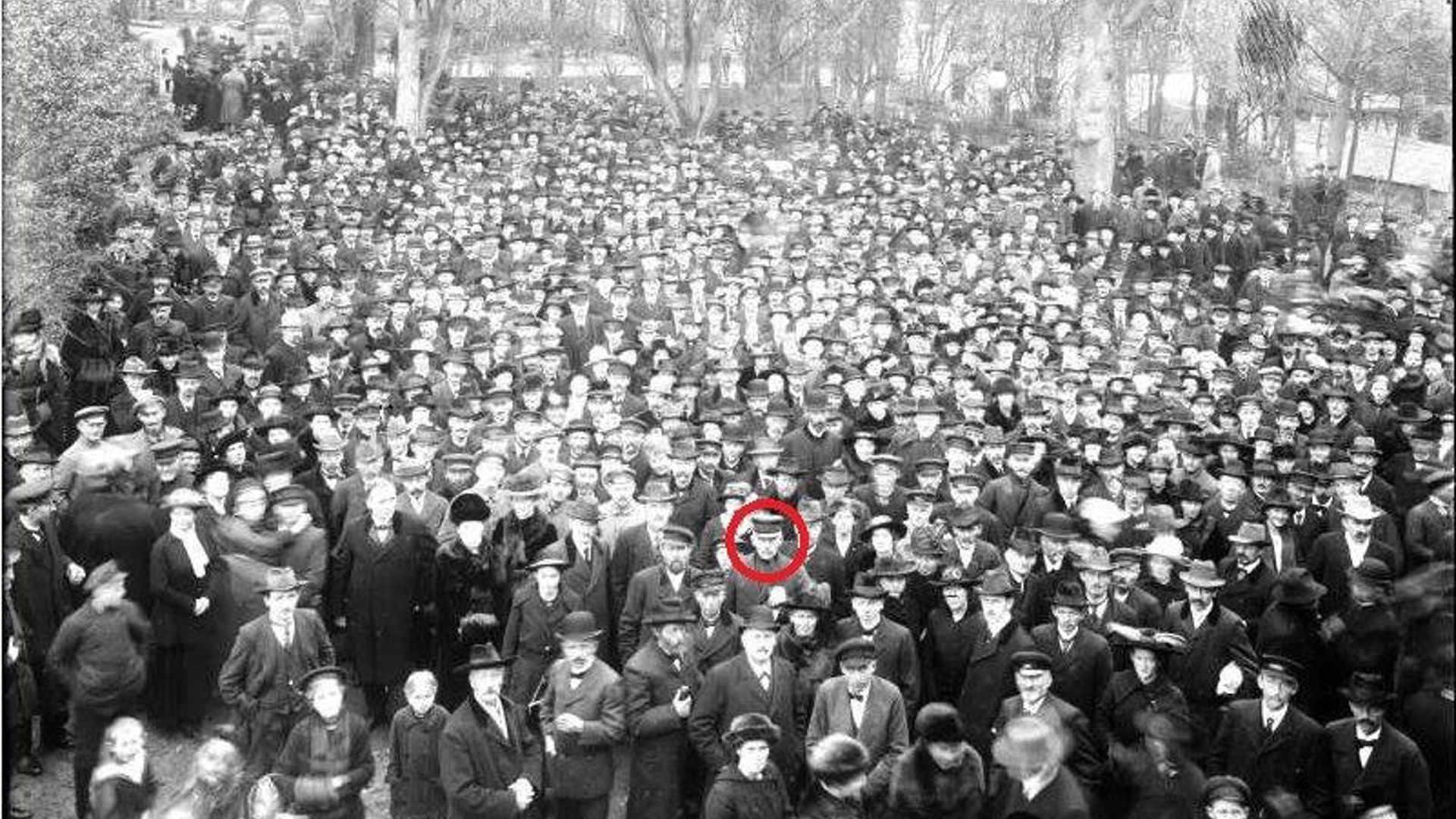Jørgen Geertsen (1872–1951)

Through mandatory recruitment, Jørgen Geertsen was obliged to serve in the German army during World War I. In the final stages of the war he guarded Russian prisoners of war who were being held on farms in Southern Jutland.
Jørgen Geertsen and his wife, Mette Marie, had a small farm near the village of Hønkys. When the German army conscripted Jørgen to fight in the war he already had several children and was past his youth, so he was not sent to the front line. For the first three years he fought as a foot soldier while his wife, Mette Marie, tried to keep the farm and the family going. She had to leave the farm, however, and moved her family to Horsbyg, near Nr. Hostrup. There she set up shop as a seamstress, working hard to make clothing in difficult conditions while her husband was away fighting. Jørgen would sometimes come home on leave, and during the war the little family even managed to grow. Three children born in wartime brought the total number of siblings to seven.
In the final stages of the war Jørgen guarded Russian prisoners of war, who had been put to work building bunkers in a line that stretched across Denmark, from Christiansfeld in the east to Esbjerg in the west. These POWs were housed on various farms in the region, and after the war many said they would prefer to stay where they were.
You now have two options (note: audio files in Danish only):
- Footprint Story about “the forgiving soldier”: a dramatized interpretation of Jørgen’s life around this time, and his version of events during the meeting at Folkehjem.
- Interview with Anne Mette Krogh, Jørgen Geertsen’s granddaughter, who relates the events of 17 November 1918 as seen through her grandfather’s eyes that day. The interview was conducted by the Museum of South Jutland, on behalf of Aabenraa Municipality.


